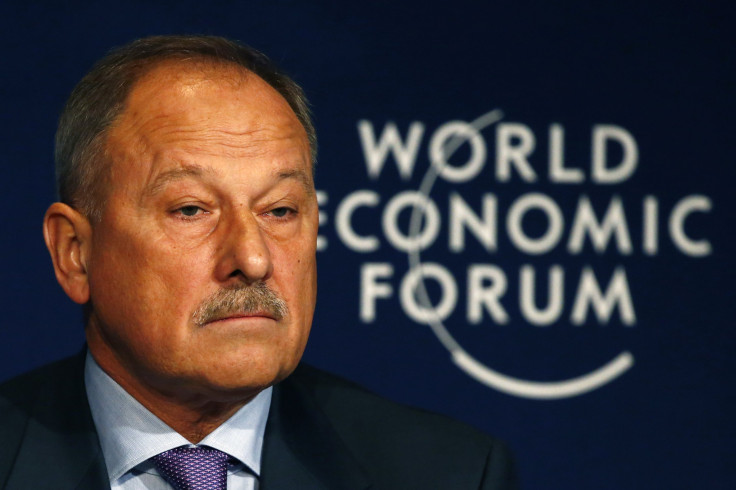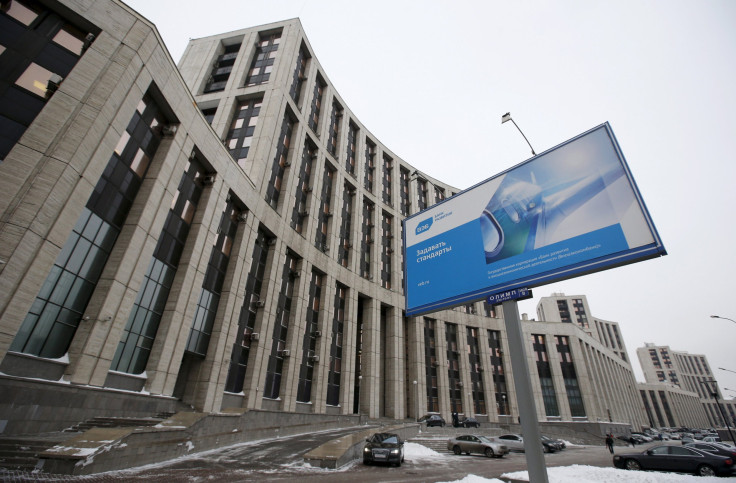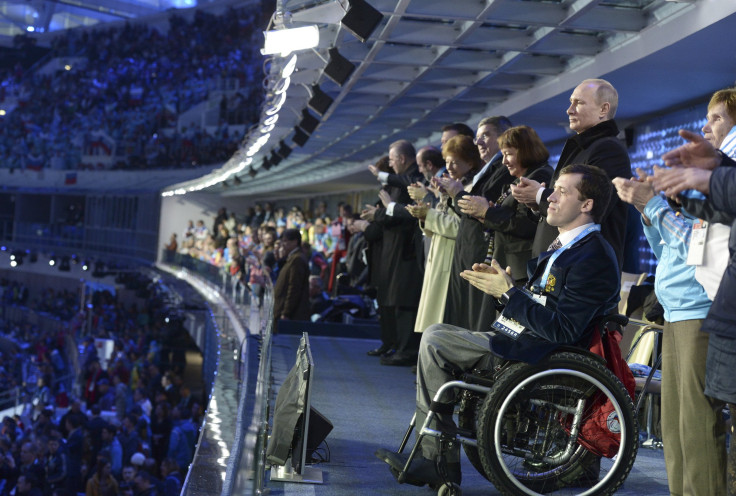Long-Serving Head Of Struggling Russian State Development Bank Quits

MOSCOW — The head of Russia's government-owned State Corporation Bank for Development and Foreign Economic Affairs stepped down Thursday amid fractious negotiations over a giant bailout for the troubled lender that could require $20 billion of government funds over four years.
The departure of Vladimir Dmitriev, who has been the head of the bank, also known as Vneshekonombank or VEB, for 12 years, was reported by leading Russian media outlets and Reuters news agency, citing sources at the bank.
A Kremlin spokesman declined to comment on Dmitriev’s fate Thursday and said reporters “will be informed” when President Vladimir Putin has signed an order about the resignation.
Speculation about Dmitriev’s exit has been rife in recent days as the Russian government looks to be coming closer to agreement about a rescue plan for the entire economy, which contracted 3.7 percent last year and is expected to continue shrinking this year.
A sprawling development bank that has served as one of the Kremlin's financial arms since it was reorganized in 2007, VEB’s portfolio of bad debt has ballooned in the wake of a collapse in crude oil prices and Russia's economic woes.
“They were taking a lot of risks not because they decided to take a lot of risks but because they were asked to take a lot of risks by the government,” said Vladimir Tikhomirov, chief economist at BCS Financial Group in Moscow. “It looked like a commercial bank, but ultimately it was a state agency.”

VEB epitomized the Kremlin’s model of financial management during the rich years of high oil prices and easy foreign credit and its slow-motion demise, highlighted by Dmitriev’s departure, signals Russia’s new, enforced belt-tightening and significantly reduced financial options.
The bank always maintained it was modeled on the state development banks of other countries, particularly Germany, and that it invested in infrastructure and high technology projects that would not otherwise be able to get off the ground. It also had a role as a portfolio manager, taking charge of some state pension funds and investing the country's currency reserves.
But questions about VEB’s organization and practices have become more insistent since it reported a loss of 250 billion rubles ($4.5 billion) in 2014.
The lender played a key role in financing construction of Russia’s Black Sea resort of Sochi ahead of the 2014 Winter Olympics, which cost $50 billion to stage, and many of those loans, issued to private companies, look unlikely ever to be repaid. Even more controversially, Dmitriev said in 2013 the bank had allocated $8 billion to investments in Ukrainian metals plants, a decision with apparently few benefits for the Russian economy.

“Opacity gives birth to a lack of supervision. As a result, development institutions turn into black holes,” Maksim Osadchy, chief analyst at BKF Bank in Moscow, wrote in a column for financial news website banki.ru earlier this month.
The total amount required to save VEB from defaulting on its debt is still under discussion, but the bank itself has said $20 billion will be required through 2020. Credit rating agency Moody’s said in a statement Wednesday it expects Russia to commit 0.3 percent of its gross domestic product to recapitalize the bank in 2016. Such a sum is significant for a government struggling with reduced revenues triggered by a fall in the value of oil, the country’s chief export earner.
Economy Minister Alexei Ulyukayev said last month the government would invest as much as 200 billion rubles ($2.6 billion) in VEB this year.
Dmitriev has sounded increasingly desperate about the situation in recent months. “We are appealing to our main shareholder: Together let's not allow a predefault situation,” he said in Jan. 22 interview with state-owned television channel Rossiya 24.
Aside from management changes and money saving cuts, options for VEB include being formally restructured as a state agency, spinning off its bad loan book into a separate bank or even filing for bankruptcy, experts said.
The leading contender to replace Dmitriev, is reported to be Sergei Gorkov, a deputy president at state-owned Sberbank, Russia's largest lender.
© Copyright IBTimes 2025. All rights reserved.





















